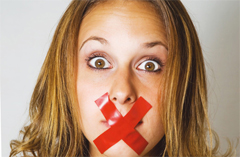
 What etiquette in the workplace means can vary between workplaces, however there are common situations where knowledge of workplace etiquette that can help you get ahead and avoid making a slip up!
What etiquette in the workplace means can vary between workplaces, however there are common situations where knowledge of workplace etiquette that can help you get ahead and avoid making a slip up!
Be Discreet and Don’t Gossip
One of the things that can be a real turn off for bosses and co-workers is if you are not trusted or known to be a gossip.
Try Not to Judge Others
Being judgemental is another turn off for others. Often, you have not chosen who you work with so being judged can be particularly annoying in the workplace. In contrast, showing compassion in the workplace has been found to make a real difference.
Show Respect to All Employees Regardless of Ranking
Loudly chastising junior staff won’t win respect. Treat others how they want to be treated, regardless of who they are.
Don’t Spread Germs!
Don’t play the hero if you are sick and contagious. Spreading your illness will not be appreciated by your co-workers!
Email Etiquette
A polite and formal approach to email shows respect and professionalism and helps you to avoid the potential etiquette pitfalls that can come with emails! Avoid humour and sarcasm unless you are sure the recipient will appreciate and understand it (and even then it might be best to avoid it). Think before using symbols and abbreviations such as smiley faces and text speak; otherwise the lines can be blurred between the personal and professional. Over use of capital letters can appear aggressive and look you are shouting; italics are more subtle if you want emphasise. It is polite to respond promptly (even if it is a short reply saying you will be respond fully at a later date) rather than leaving the sender waiting. If you have a overload of emails coming in, you could arrange an autoresponder to let people know that and the current response time etc.
Phone Call Ettiquette
Keep personal calls to a minimum, unless urgent. For personal and business calls, keep your voice at a discreet level so as to take your co-workers into consideration. Answer the work phone with department or name and possibly a polite opening response such as how can I help?
Tidy Up After Yourself
For example, don’t leave the printer empty of paper, jammed or out of ink and if you find it that way, it is good etiquette to sort it out for the next person.
Avoid Eating Strong Smelling Foods
Think about the impact of your food choices on others!
Know Your Colleagues & Clients Names
It shows thoughtfulness to remember people’s names and any other details that will make a difference to that person.
Pay attention
Pay attention when talking to another person. Talk to the persons face and not into your computer screen or mobile/cell phone, making it clear the person has your full attention.
Jen Smith is a Life Coach and Mentor living in the UK. She has tried many career paths herself and now helps people achieve their goals and dreams.
Leave a Reply